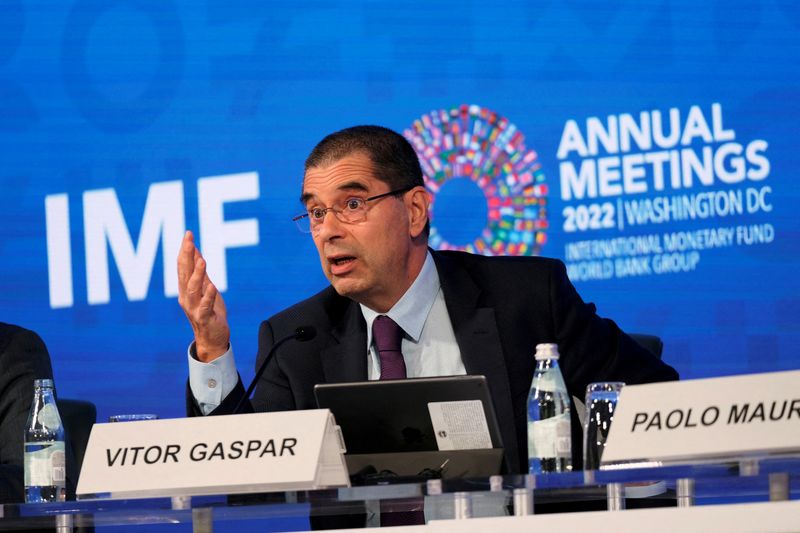By David Lawder and David Milliken
WASHINGTON (Reuters) -Britain should bring public debt under control in a way that preserves public investment, a top official at the International Monetary Fund said on Wednesday as finance minister Rachel Reeves prepares for her first budget next week.
IMF Fiscal Affairs Director Vitor Gaspar said he welcomed debate in Britain over fiscal rules but did not offer a detailed view on potential rule changes as part of the budget that could allow finance minister Rachel Reeves to borrow more to finance public investment.
"The (IMF) Fiscal Monitor emphasizes that public investment should be protected in the framework of a set of rules and budgetary procedures that foster sound macroeconomic performance," Gaspar said at a press conference at the IMF's annual meetings in Washington.
"The fact that that debate is very much at the center of the debate in the United Kingdom right now is very much welcome," he added.
IMF chief economist Pierre-Olivier Gourinchas said on Tuesday that Britain and other wealthy nations needed to stop debt rising as a share of the economy to ensure it had room to act during an economic crisis. The IMF would assess any new fiscal rules, he added.
British government sources said last week that Reeves was looking to raise around 40 billion pounds ($52 billion) in her Oct. 30 budget - mostly through higher taxes - to balance the budget for day-to-day spending and enable higher public investment.
Britain could raise more tax by reducing exemptions to value-added tax, the IMF said in a global report published in full on Wednesday.
The IMF forecasts - which do not take account of possible measures in Reeves' budget - show general government revenue rising to 39.3% of gross domestic product in 2025 from 39.1% this year and holding there, just below 2022's peak of 39.4%.
This is up sharply from 36.3% in 2019 before the pandemic and above the 2024 average across the Group of Seven rich economies of 35.3%, but well below the euro zone's 46.4%.
The IMF forecasts British general government gross debt will keep rising as a share of GDP from 100% in 2023 to 108.3% in 2029 - a slightly bigger increase than the rise from 123.4% to 131.1% it expects for the G7 as a whole.

"We believe it's very important to bring public debt under control. It's very important to control for public debt risks," Gaspar said.
($1 = 0.7729 pounds)